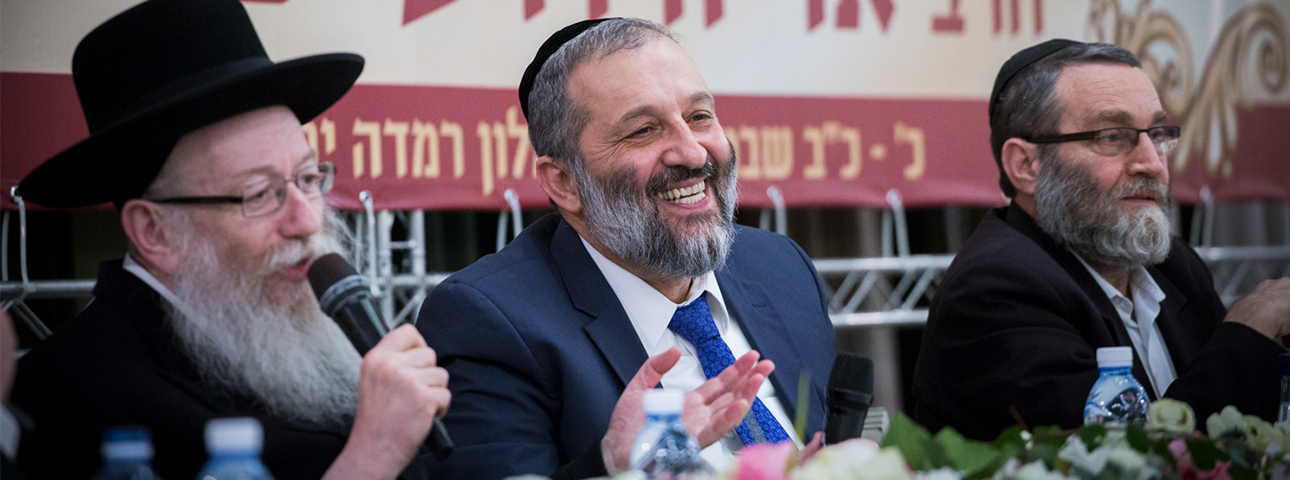Proposed Basic Law: Torah Study

To: The Members of the Knesset
Re: Proposed Basic Law: Torah Study
Honorable members of the Knesset,
There is no dispute that in Jewish tradition Torah study is an important value that has been a central component of Jewish identity throughout the ages. At the same time, the early Tanna’im, the sages of the Mishnah, taught us the importance of combining Torah study with gainful employment. It is truly difficult to imagine the development of the Jewish intellectual world, among the religious and nonreligious alike, without a glorious tradition of learning; but we must also remember that with the establishment of Israel as the state of the Jewish people, the role of ensuring the Jewish people’s survival became the responsibility of the state and its institutions, and especially the Israel Defense Forces.
Over the years, various arrangements have been proposed for dealing with this issue. Their common denominator is the assumption that we should aspire to an equal sharing of the burden of military service, because it is crucial for our existence as a society. The importance of equality was clearly expressed by Justice Cheshin (in the petition against the “Tal Law,” HCJ 6427/02):
Equality, as we all know, is a key element of the social contract on which democratic society rests. For without equality, in a place where the state discriminates against one part of the population, the social contract will be ripped to shreds, democracy will be destroyed, and the state will exist no longer. The principles of equality and the ban on discrimination are indeed the principles of justice and fairness that a civilized society cannot be without.
The proposed Basic Law: Torah Study is problematic on four accounts:
First of all, it would grant yeshiva students a sweeping exemption from military service. This is a radical idea that totally obviates the aspiration to promote an equal shouldering of the burden and subverts the desire to achieve a balance between the clashing values.
Second, this is an unprecedented proposal to enshrine the principle of inequality in a Basic Law. In the Proclamation of Independence we pledged, to ourselves and to the nations of the world, to uphold the principle of equality in this country. Should this proposal pass, not only will our constitution fail to commit us to equality, it will actually commit us to inequality.
Third, the proposal is liable to have far-reaching consequences in domains other than military service. For example, it might have implications for the question of a core educational curriculum for our schools and state support of educational institutions that do not teach it.
Fourth, as a matter of governance we must decry the use of Basic Laws to solve political crises. Basic Laws are intended to define the fundamental values of our state and the common denominator underlying our society—our credo; they are not an everyday tool to be used in political battle or to solve some specific need.
Fifth, the overwhelming majority of Israeli citizens, including many who study and love the Torah, are troubled by the statement that devotion to Torah study is equivalent to military service, in which we call upon our young men and women to risk their life and deprive them of their freedom for a protracted period. The presumption that the Knesset, as a result of political arm-wrestling, might enact a Basic Law that stands in utter contradiction to the preference of the vast majority, on a matter of such existential importance, is unacceptable. Should this proposal pass, it will negate the possibility of our continuing to maintain a conscript force in its present format of a “people’s army.” Not only would it undermine the public’s confidence in the Knesset and damage the partnership among the various sectors of Israeli society; the resultant shortage of manpower and the possible decline in young Israelis’ willingness to serve may well threaten our national security. .
The Knesset should reject this proposal forthwith.
Sincerely yours
Prof. Yuval Shany Yohanan Plesner Prof. Yedidia Stern
Vice-president for research President Vice-president for research
